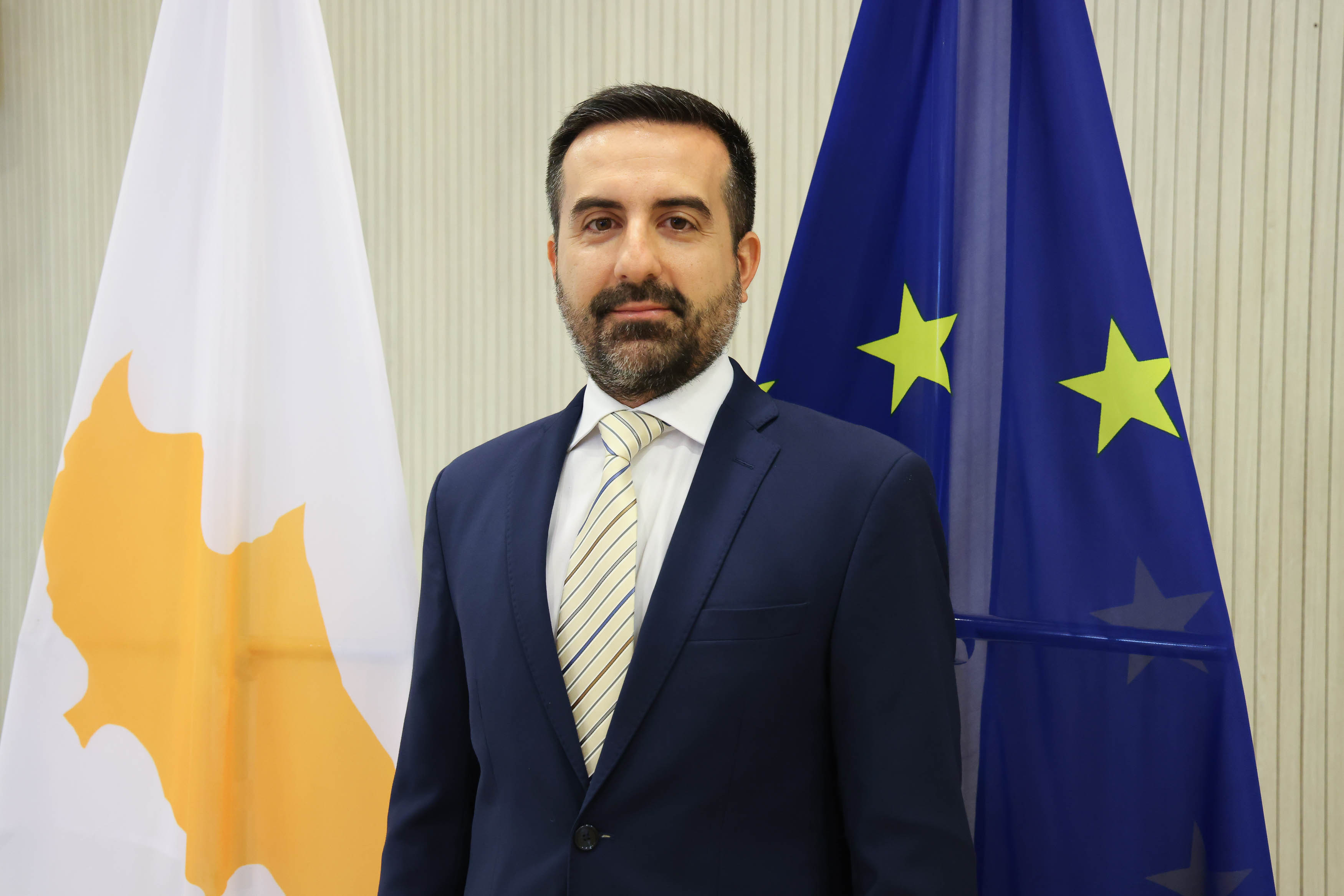Deputy Migration Minister Nicholas Ioannides stated on Thursday that Cyprus is not conducting pushbacks. He also addressed accusations of far-right support, describing them as “malicious” and stemming from his connection to the Mari disaster.
Ioannides, whose family was affected by the explosion, told Alpha News, “Because as families we came forward in reaction to this great catastrophe and the loss of our own people, this reaction was seen as extreme or far-right.”
“Those who know me understand that this is not the case, I have never been a member of any political party or a politician; I was focused on my academic pursuits,” he clarified.
Ioannides subtly accused the left-wing opposition party Akel, which was in power during the disaster.
Asked about his negative view of solving the Cyprus problem through a federation, Ioannides skirted the question completely, saying that his focus is on his duties as assigned by the president.
Commenting on migration and on the barbed wire along the Green Line, Ioannides said that he is full agreement with the president and all relevant ministries on the matter.
“It is not about the views of each head, it is about the government’s programme and we will implement it, each one possibly leaving his personal mark,” he said.
On the migrants stranded in the buffer zone and related issues with Unficyp, he stated he needed more information before commenting but reiterated, “There are no pushbacks; the Republic of Cyprus is a state governed by the rule of law.”
Commenting on his ministry, he said: “We will be in contact with the minister of education for the students and the minister of social welfare for the unaccompanied minors, since our effort will be to ensure that these people who are entitled to stay here permanently are integrated smoothly into Cypriot society, so as not to create phenomena of ghettoisation, crime, etc.
The UNHCR has expressed concerns about the shrinking protection space in Cyprus, citing government measures affecting Syrian refugees and asylum-seekers, including the suspension of asylum application processing since mid-April, impacting over 14,000 Syrian asylum seekers.
UNHCR also added that it has witnessed the “resumption of arrests, sometimes involving force, of asylum-seekers attempting to submit subsequent applications, aiming to subject them to return proceedings.”
Furthermore, it added, recent months have seen multiple reports of interceptions and “subsequent pushbacks of boats carrying asylum-seekers attempting to reach Cypriot shores.”
The UNHCR define pushbacks as: “Various measures taken by states which result in migrants, including applicants for international protection, being summarily forced back to the country from where they attempted to cross or have crossed an international border without access to international protection or asylum procedures or denied of any individual assessment on their protection needs which may lead to a violation of the principle of non-refoulement.”






Click here to change your cookie preferences